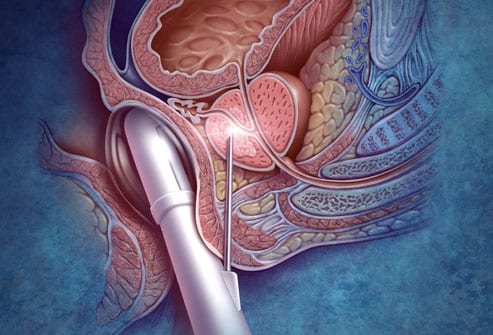A Brief Guide To Prostate Problems
02/12/2020
Despite its small stature, the prostate gland serves as a host to an array of problems which affects 3 out of 5 men above 50. The primary function of this walnut-shaped gland is to generate a fluid which passes into semen. This fluid has an important role to play in determining the level of a man’s fertility.
The prostate gland grows larger with age. But it can cause health issues on becoming too large. The problems can be diagnosed by a health expert either by a rectal check-up or from routine examination.
Types & Symptoms Of Prostate Dysfunctions…
Benign Prostatic Hyperplasia (BPH)
This state of prostate enlargement to an unhealthy size affects 8 out of 10 men over 80 years of age. The number comes down to 1 in 2 men within the age group of 51-60 and 1 in 12 men within 31-40.
However, BPH doesn’t cause prostate cancer and only half men developing the symptoms require treatment. It usually enlarges the prostate making it difficult to urinate and causing dribbling after urination. Men often complain about problem in sleeping at night as they face frequent needs to urinate.
The best treatment of BPH includes watchful waiting and surveying the whole situation. Your doctor will schedule the check-ups as per your health condition and even advise intensive treatment if the symptoms worsen with time.
Various medications are available which help in relaxing the muscles surrounding the prostate for offering relief. Here you can select natural medications like Prostaphytol which blends in the wellness of pomegranate into your daily schedule.
If the medicines don’t work, then you might have to go for surgeries. But it is very important to weight out the inherent risks prior to undertaking the BPH surgery and conduct regular check-ups following the same.
The doctors might even suggest alternative treatments like lasers, microwaves or radio waves for treating urinary problem arising out of BPH.
Prostate Cancer
Prostate cancer affects 1 out of 6 men in their lifetime making it the second most common form of cancer just next in line to skin cancer. However, the growth rate of these cancer cells is very slow. As a result, only 1 out of 35 men die from prostate cancer.
The risk of prostate cancer increases with increasing age. While the exact causes of prostate cancer are unknown, some of the risk factors associated with the ailment are listed down below:
- Family history where a person’s father or brother had been previously diagnosed with prostate cancer.
- African-American man stand at greater risk of succumbing to prostate cancer compared to the Caucasians.
Prostate cancer doesn’t reveal any symptoms at the very onset. But you will face difficulty in urinating as the cancer proceeds to an advanced stage. Men have also complained of blood passing through the semen or urine, burning sensation during urination, painful ejaculation and pain in the hips, back or pelvis.
During the diagnosis process, you doctor will enquire about your past medical history and even ask you to undergo a physical exam wherein he will insert a gloved finger into your rectum and search for lumpy areas in your prostate. The doctor might even order a blood test for checking your prostate-specific antigen or PSA level.
Men with prostate cancer or an enlarged prostate gland usually have high PSA count. In such cases, you might be advised to undergo an ultrasound exam and in case of positive results, your doctor will try to confirm the same through a biopsy.
Prostatitis
The infection or inflammation of the prostate gland is more common in young and middle-aged men. Between 5-10% men succumb to prostatitis in their lifetime. Anti-bacterial prostatitis arises from a bacterial infection and causes chills, fever or pain. Chronic bacterial prostatitis occurs when the infection takes a chronic shape and is pretty hard to treat.
Final Words
Prostate is an internal sex organ positioned in between the pelvis and the bladder. Since this gland has an immense role in regulating the male anatomy, its dysfunction can bring an avalanche of problems in your daily life. So, walk the preventive path by following healthy lifestyle choices and seek out the doctors advise whenever required.